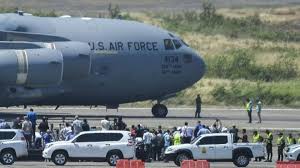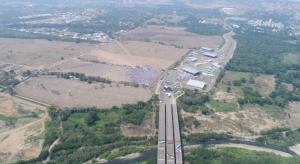Anytime an imperialist government offers "aid" to an oppressed country, questions need to be asked. These things are NEVER without strings attached. The aid offered is invariably used to keep the nation receiving said "aid" dependent on the country giving it. Read about the help kkkanada is giving to Venezuela.
Canadian ‘aid’ to Venezuela part of plan to overthrow government
If more people understood that “aid” often goes hand in hand with military intervention there would be less uncritical support for it.
An important, though little acknowledged, principle of Canadian ‘aid’ policy is that military intervention elicits international assistance. Or, in the case of Venezuela ‘aid’ is a tool being used to stoke military conflict.
In fact, a long-standing element of foreign policy is that wherever Canadian and US troops kill Ottawa provides ‘aid’. This military-intervention-equals-aid pattern dates back at least to the 1950-53 Korean War when the south of that country was a major recipient of Canadian assistance. Canadian ‘aid’ flowed to south Vietnam during the U.S. war there and to Grenada after the 1983 US invasion. During the 1990-91 Iraq war Canada provided $75 million in assistance to people in countries affected by the Gulf crisis. Hundreds of millions of dollars flowed into Haiti after Canadian troops helped overthrow the country’s elected government in 2004. In the years after the invasions, Afghanistan, Iraq and Haiti were the top three recipients of Canadian ‘aid’. A sizable proportion of the $2 billion in ‘aid’ Canada spent in Afghanistan was a public relations exercise to justify the war.
The intervention-equals-aid pattern is an outgrowth of the primary objective of Canadian overseas assistance, which is to advance Western interests, particularly keeping the Global South tied to the US-led geopolitical order (as articulated in 1950 when Ottawa began its first significant non-European allocation of foreign aid through the Colombo Plan).
Justin Trudeau announced Canada would deliver $53 million in ‘aid’ to Venezuelans at the most recent “Lima Group” meeting. The Ottawa gathering also called on the Venezuelan military to oust the elected president and urged the military not to impede humanitarian assistance from entering the country. The US and self-appointed interim president Juan Guaidó have made delivering ‘aid’ central to their campaign to oust Maduro. US military planes have transported hundreds of tons of ‘aid’ to the Colombian border City of Cucuta. To test the military’s loyalty to the government, Guaidó announced plans to force ‘aid’ into the country.The US and Colombia clearly aimed exploit this moment to intervene.
Whether it reaches the point of armed confrontation, the ‘aid’ gambit is a public relations strategy. The aim is to exaggerate the scope of the economic downturn and to portray Nicolas Maduro as indifferent to the population’s (real) hardships.The public relations campaign even included a “Live Aid” style Venezuela fundraiser put on by billionaire Richard Branson in Cucuta last night before Guaido said he will seek to force ‘aid’ into the country. The concert fizzled with only about 5,000 people showing up and some artists pulling out at the last minute.
For their part, the International Red Cross and UN have refused to participate in the US led ‘aid’ endeavor. A UN spokesperson called Washington’s ‘aid’ plan “politicised”.
The politics driving the ‘aid’ deployment is obvious, but some progressives have been seduced by the label. In an internal memo responding to media backlash over their principled criticism of Ottawa’s regime change efforts in Venezuela, the Canadian Union of Public Employees (CUPE) said it supports the federal government’s decision to increase humanitarian assistance to Venezuelans. But, the slow-moving coup attempt and Canadian ‘aid’ disbursements can’t be separated. They are simply different parts of a single plan.
It’s not uncommon for progressive organizations to support ‘imperial aid’ as a way to soften their criticism of international policies. At their 2006 convention, for instance, the NDP leadership sought to temper the “troops out” of Afghanistan demand pushed by activists by including language in the resolution that called for “support[ing] the continuation of development assistance to Afghanistan.” But, the ‘aid’ there was obviously designed to support Canada’s military occupation.
In the academic literature it’s understood that the Canadian International Development Agency was “not a policy maker, but a policy taker.” The dissolution of CIDA into Global Affairs Canada in 2013 further subordinated aid policy to foreign policy objectives.
Far and away the largest contribution announced, Canada’s humanitarian assistance to Venezuela is not designed to alleviate suffering. Its aim is to overthrow the government, which may spark and/or require war. If that disastrous situation develops, we need to add the ‘aid-leading-to-military intervention principle’ to our critical foreign policy lexicon


